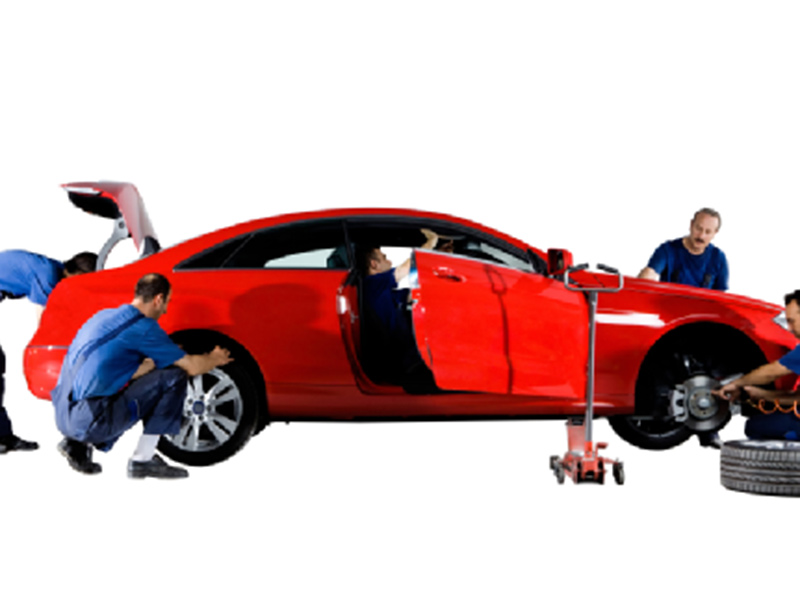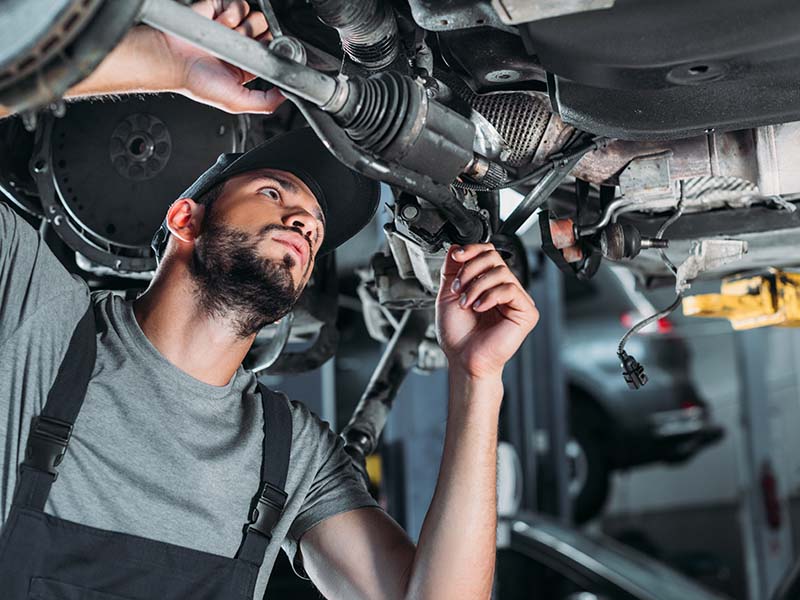All Categories
Featured
When your cars and truck gets too hot, it can really feel like a major emergency, however remaining calm and adhering to the ideal steps can protect against significant engine damage and assistance obtain you back on the road safely. In this post, we'll discover what to do if your cars and truck overheats and provide preventative ideas to minimize the risk of overheating in the future.
If Your Car Gets too hot,What to Do. If your auto begins to overheat is to draw over to a risk-free place as quickly as possible, draw Over to a Safe Place The first and most important action. Turn on your risk lights and assist your lorry to the shoulder or right into a parking lot. Maintaining your automobile running while it's overheated can cause severe damage to the engine, so it's crucial to shut the engine off right now.
Allow the Engine Cool Down Once you've securely stopped, allow the engine to cool down. You need to never ever try to open up the radiator cap while the engine is still hot, as the release of heavy steam or hot coolant can cause burns. Wait a minimum of 15-20 mins to permit the engine temperature level to go down to a safer level prior to continuing.
![]()
Inspect the Coolant Level After the engine has cooled down, examine the coolant degrees by examining the tank or radiator. Top it off with a combination of coolant and water (as defined by your car's maker) if it's reduced. Always use care when opening the coolant reservoir, as stress might have accumulated.
Seek Visible Leaks While you wait for the engine to cool down, aesthetically examine the radiator, hoses, and coolant reservoir for any type of noticeable leaks or cracks. A leaking radiator or pipe is an usual reason for overheating. It's far better to call a tow solution than risk driving better and triggering added damages. if you discover a substantial leak.
Reactivate the Engine After permitting the engine to cool and making certain the coolant is complemented, start the engine and keep an eye on the temperature gauge. If the temperature level remains to rise quickly, it's ideal to shut the engine off and call for roadside support or a tow to the nearest mechanic.
![]()
Exactly How to stop Getting Too Hot in the Future. Frequently Check Coolant Degrees Among the most convenient methods to stop overheating is by preserving the appropriate degree of coolant. Over time, coolant can vaporize, so regularly check the coolant degrees in the reservoir. Low coolant degrees can trigger the engine to overheat quickly, so leading it off as needed.
Inspect the Radiator The radiator plays a vital role in keeping the engine cool. Occasionally inspect the radiator for any obstructions, dirt, or debris that might block air flow. If you notice any signs of damages, such as rust or leaks, have it fixed or replaced asap.
The thermostat regulates the circulation of coolant, while the water pump circulates it with the engine. If either part is damaged, it can avoid proper cooling.
Flush the Cooling System Over time, coolant can break down and end up being ineffective, causing a build-up of particles in the system. Purging the cooling system every 30,000 miles, or as suggested in your lorry's manual, aids to get rid of any kind of sludge or accumulation and makes certain the cooling system is working properly.
Screen the Condition of the Tubes The tubes in your car's cooling system can wear or crack with time. Examine the pipes for any signs of wear, such as bulging, fractures, or leakages, and replace them if needed. Stopping coolant leaks can go a long way in staying clear of getting too hot.
![]()
Drive Responsibly Aggressive driving, such as accelerating promptly or driving at high rates, puts added strain on your engine and its cooling system. Attempt to drive at moderate rates, particularly on warm days or when driving on steep inclines, to lower the chances of overheating.
Stay Clear Of Straining Your Vehicle Lugging extreme weight in your car puts stress and anxiety on the engine and cooling system. Constantly be conscious of your car's weight restriction, especially if you're transporting hefty loads, hauling a trailer, or driving cross countries in hot weather condition.
Final thought. An overheating car can be a frightening experience, yet knowing how to respond and avoid it can save you time, cash, and potential engine damage. Constantly examine your coolant levels, check vital parts like the radiator, thermostat, and tubes, and follow a regular maintenance timetable. By remaining on top of your car's air conditioning system, you can lower the risk of overheating and enjoy a smoother, more secure driving experience.
If Your Car Gets too hot,What to Do. If your auto begins to overheat is to draw over to a risk-free place as quickly as possible, draw Over to a Safe Place The first and most important action. Turn on your risk lights and assist your lorry to the shoulder or right into a parking lot. Maintaining your automobile running while it's overheated can cause severe damage to the engine, so it's crucial to shut the engine off right now.
Allow the Engine Cool Down Once you've securely stopped, allow the engine to cool down. You need to never ever try to open up the radiator cap while the engine is still hot, as the release of heavy steam or hot coolant can cause burns. Wait a minimum of 15-20 mins to permit the engine temperature level to go down to a safer level prior to continuing.

Inspect the Coolant Level After the engine has cooled down, examine the coolant degrees by examining the tank or radiator. Top it off with a combination of coolant and water (as defined by your car's maker) if it's reduced. Always use care when opening the coolant reservoir, as stress might have accumulated.
Seek Visible Leaks While you wait for the engine to cool down, aesthetically examine the radiator, hoses, and coolant reservoir for any type of noticeable leaks or cracks. A leaking radiator or pipe is an usual reason for overheating. It's far better to call a tow solution than risk driving better and triggering added damages. if you discover a substantial leak.
Reactivate the Engine After permitting the engine to cool and making certain the coolant is complemented, start the engine and keep an eye on the temperature gauge. If the temperature level remains to rise quickly, it's ideal to shut the engine off and call for roadside support or a tow to the nearest mechanic.

Exactly How to stop Getting Too Hot in the Future. Frequently Check Coolant Degrees Among the most convenient methods to stop overheating is by preserving the appropriate degree of coolant. Over time, coolant can vaporize, so regularly check the coolant degrees in the reservoir. Low coolant degrees can trigger the engine to overheat quickly, so leading it off as needed.
Inspect the Radiator The radiator plays a vital role in keeping the engine cool. Occasionally inspect the radiator for any obstructions, dirt, or debris that might block air flow. If you notice any signs of damages, such as rust or leaks, have it fixed or replaced asap.
The thermostat regulates the circulation of coolant, while the water pump circulates it with the engine. If either part is damaged, it can avoid proper cooling.
Flush the Cooling System Over time, coolant can break down and end up being ineffective, causing a build-up of particles in the system. Purging the cooling system every 30,000 miles, or as suggested in your lorry's manual, aids to get rid of any kind of sludge or accumulation and makes certain the cooling system is working properly.
Screen the Condition of the Tubes The tubes in your car's cooling system can wear or crack with time. Examine the pipes for any signs of wear, such as bulging, fractures, or leakages, and replace them if needed. Stopping coolant leaks can go a long way in staying clear of getting too hot.

Drive Responsibly Aggressive driving, such as accelerating promptly or driving at high rates, puts added strain on your engine and its cooling system. Attempt to drive at moderate rates, particularly on warm days or when driving on steep inclines, to lower the chances of overheating.
Stay Clear Of Straining Your Vehicle Lugging extreme weight in your car puts stress and anxiety on the engine and cooling system. Constantly be conscious of your car's weight restriction, especially if you're transporting hefty loads, hauling a trailer, or driving cross countries in hot weather condition.
Final thought. An overheating car can be a frightening experience, yet knowing how to respond and avoid it can save you time, cash, and potential engine damage. Constantly examine your coolant levels, check vital parts like the radiator, thermostat, and tubes, and follow a regular maintenance timetable. By remaining on top of your car's air conditioning system, you can lower the risk of overheating and enjoy a smoother, more secure driving experience.
Latest Posts
Find Affordable Auto Repairs with Montclare’s Exclusive Service Specials
Published May 26, 25
1 min read
Discover the Perks of Vinyl Fencing with Montana Fencing
Published May 21, 25
1 min read
Specialist Industrial Roof Solutions in North Platte, Nebraska
Published May 20, 25
2 min read